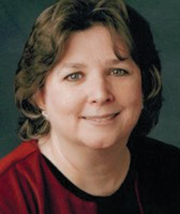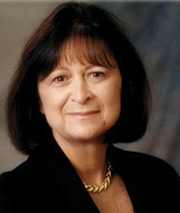Young Adulthood and ADHD
Chris A. Zeigler Dendy and Ruth A. Hughes
Download PDF
A Message of Hope
 When Chris’s gifted son with ADHD was struggling in high school, she and her husband worried a lot: Would he ever graduate, ever get a job, or ever live independently? Many of you may be wondering the same thing about your high school student, but we have good news for you. Your teen will continue maturing into his or her thirties and forties. Today Chris’s son is happily married and has a job that he loves.
When Chris’s gifted son with ADHD was struggling in high school, she and her husband worried a lot: Would he ever graduate, ever get a job, or ever live independently? Many of you may be wondering the same thing about your high school student, but we have good news for you. Your teen will continue maturing into his or her thirties and forties. Today Chris’s son is happily married and has a job that he loves.
Having lived through the process of helping our sons launch into young adulthood, we both wanted to share a few of the lessons that we learned along the way.
A key takeaway message for parents is this: Please don’t wait until your teen’s senior year in high school before you talk about the future and careers he or she might enjoy. Start now, whether they are in middle or high school. Identify strengths, talents, and interests that will guide your teen’s career decisions. Parents must partner with their teen during these formative years. Seek the guidance you need for assisting your teen as they pursue their dreams.
 Understanding ADHD and executive function deficits is critical. When you understand that most of our children don’t mature as quickly as their peers, you will have more realistic expectations for your teen. Because of delayed brain maturity, key executive skills such as organization, remembering, getting started, and finishing work that are critical for college success are not fully developed. Recognize that your teen may take longer to reach his or her goals, but with your support they can be successful.
Understanding ADHD and executive function deficits is critical. When you understand that most of our children don’t mature as quickly as their peers, you will have more realistic expectations for your teen. Because of delayed brain maturity, key executive skills such as organization, remembering, getting started, and finishing work that are critical for college success are not fully developed. Recognize that your teen may take longer to reach his or her goals, but with your support they can be successful.
Consider reframing delayed maturity as simply that your teen is a “late bloomer.” And they do bloom—in their own time frame.
Our intention in writing Launching Into Young Adulthood with ADHD: Ready or Not! was to bring parents a message of hope. Teens with ADHD may take longer to mature, but with your support they can be successful. So, parents should expect to provide support longer than expected to help their teen launch successfully into young adulthood. One parent put it this way: “I would advise parents to see advocating as a lifelong parental job.”
In our book, we provide the guidance parents will need to support their teens through high school and beyond. Here are just a few of the key topics we address, plus some of the tips we share.
- School success.
Successful students build a solid academic foundation, learn to compensate for deficits in executive skills, and have enhanced self-esteem. Ensuring school success provides your teen the solid foundation needed beyond high school and for life. - Self-esteem.
If your teen is struggling academically, of course you must address those concerns first. But then encourage participation in activities outside of school that utilize his or her strengths plus provide opportunities to succeed, thus building self-esteem. - Friends.
Facilitate your teen’s ability to make friends. Host a trip to a special event so your teen can invite a friend to go along. Although there are no magic answers, you can help them make friends more easily. - Anxiety and depression.
Anxiety is rampant among students with ADHD, yet is often unaddressed. If your teen is struggling, be alert for signs of anxiety or depression. Consider discussing self-help strategies with your teen or young adult; for example, regular exercise or deep breathing exercises. - Gap year.
Consider a structured gap year program after high school graduation to give your teen’s brain more time to mature. The planned delay provides opportunities to explore potential career options and also enhances success later in college. For example, one student took a community college course, taught a dance class to six and seven year olds, and volunteered to help lead a school support group for students who have loved ones who are incarcerated. - Specialized professional or technical training via a community college.
Several of these high-demand jobs pay more money than the average college graduate is paid. Advantages of these programs include: lower tuition, less debt, shorter time frame for completion, plus gives the added advantage of having much needed parental structure and support from home. - Premature launch after high school.
Major risks face our teenagers, who lack the maturity required for independent work and attend college too soon. For example, roughly one third of all students drop out of college, but the dropout rate for those with ADHD soars even higher: twice as many students with ADHD drop out—70 to 80 percent. But to be clear, our children can be successful in college if we give them the gift of time, provide needed supports, and allow them adequate time to mature more fully. - College.
If your teen goes directly to college, however, plan ahead and provide the supports needed for success. Help them apply for academic supports, join them for a visit to the campus, meet the director of student services, and request accommodations if eligible. Students who have family support have lower college dropout rates. So, if your teen is still struggling, attending a community college provides an obvious advantage. - Career match.
Identify your teen’s strengths and interests. Consider encouraging your teen to complete a career or interest inventory, such as the Strong Interest Inventory or Focus 2. The test results provide an excellent springboard for discussion of potential careers. The goal here is to help your teen find the right career match. - Career launch.
Our teens often need extra support even as they launch their careers. Job-hunting is so much more complex and difficult now. Parents can familiarize themselves with key steps in the job search by helping them practice job interviews, identify potential jobs plus available professional supports, and be a cheerleader if and when interviews don’t go well. - Speed bumps of life.
Life never goes quite as planned, and this is especially true for our youth with ADHD. Fortunately, as teens mature, the speed bumps are fewer and further between. But when challenges do arise, you’ll be there help guide them through it. - Gallery of hope.
We closed our book with the success stories of more than twenty individuals with ADHD who Chris has followed for twenty or thirty years. Young adults are pictured as teens, then again as adults; plus, we include their current job titles. Reviewing these various career paths may give your teen additional ideas for potential career paths.
 Ruth A. Hughes, PhD, is the former CEO of CHADD. She advocated with Congress and the federal government to ensure the rights and access to treatment for children and adults with ADHD. As former director of membership, she helped to launch Parent to Parent, CHADD’s family training program on ADHD. Teacher to Teacher, a training program on ADHD for educators, was begun during her tenure as CEO. She spent much of her early career helping to establish the field of psychiatric rehabilitation, helping people with serious mental illnesses to recover and lead fruitful lives in the community. Now semiretired, Dr. Hughes continues to present, train, and write about ADHD, and she serves on CHADD’s public policy committee. Her passion is finding ways to help young people with ADHD transition to adulthood. Her son, who has ADHD and LD, has been and continues to be her inspiration and teacher.
Ruth A. Hughes, PhD, is the former CEO of CHADD. She advocated with Congress and the federal government to ensure the rights and access to treatment for children and adults with ADHD. As former director of membership, she helped to launch Parent to Parent, CHADD’s family training program on ADHD. Teacher to Teacher, a training program on ADHD for educators, was begun during her tenure as CEO. She spent much of her early career helping to establish the field of psychiatric rehabilitation, helping people with serious mental illnesses to recover and lead fruitful lives in the community. Now semiretired, Dr. Hughes continues to present, train, and write about ADHD, and she serves on CHADD’s public policy committee. Her passion is finding ways to help young people with ADHD transition to adulthood. Her son, who has ADHD and LD, has been and continues to be her inspiration and teacher.
 Chris A. Zeigler Dendy, MS, is a popular author, educator, school psychologist, and mental health professional with more than forty years of experience. She is also the mother of three children with ADHD. She provides training on ADHD nationally and internationally. Dendy is the author of five books, including Teenagers with ADD, ADHD, & Executive Function Deficits. Some twenty years ago she teamed up with her son, Alex Zeigler, to create The ADHD Iceberg poster; they later coauthored A Bird’s-Eye View of Life with ADHD… Ten Years Later. Dendy was the lead author for CHADD’s Educator’s Manual on ADHD and cofounder of its Teacher to Teacher training program. In 2006, she was inducted into CHADD’s Hall of Fame, and in 2014, she received CHADD’s prestigious Lifetime Achievement Award. She coauthored her most recent book, Launching into Young Adulthood with ADHD: Ready or Not! with Ruth Hughes, PhD.
Chris A. Zeigler Dendy, MS, is a popular author, educator, school psychologist, and mental health professional with more than forty years of experience. She is also the mother of three children with ADHD. She provides training on ADHD nationally and internationally. Dendy is the author of five books, including Teenagers with ADD, ADHD, & Executive Function Deficits. Some twenty years ago she teamed up with her son, Alex Zeigler, to create The ADHD Iceberg poster; they later coauthored A Bird’s-Eye View of Life with ADHD… Ten Years Later. Dendy was the lead author for CHADD’s Educator’s Manual on ADHD and cofounder of its Teacher to Teacher training program. In 2006, she was inducted into CHADD’s Hall of Fame, and in 2014, she received CHADD’s prestigious Lifetime Achievement Award. She coauthored her most recent book, Launching into Young Adulthood with ADHD: Ready or Not! with Ruth Hughes, PhD.
Other Articles in this Edition
Screen Time and Sleep During the Pandemic
Eight Ways to Stop Taking Things So Personally
Reading Comprehension and Executive Function
Compensatory and Recovery Services for Students with ADHD
Executive Function Issues and ADHD
Growing College Success from First Semester Failure
